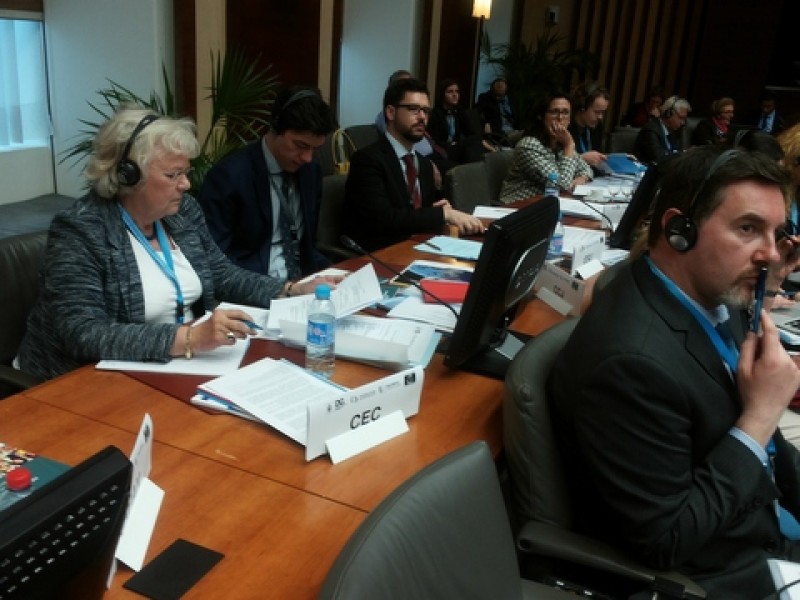On 12 April, CEC General Secretary Fr Heikki Huttunen participated in the Standing Conference of the Council of Europe Ministers of Education, which brings together ministers of education from the 27 CoE member States. The meeting took place in Brussels. He was accompanied by Ms Hanna Broadbridge, Moderator of the CEC Thematic Reference Group on EDC (Education for Democratic Citizenship) and Richard Fischer, Executive Secretary in Strasbourg. The ministers adopted a Declaration for “Securing Democracy through Education – The development of a Reference Framework of Competences for Democratic Culture”.
Education ministers from across the continent have given their backing to a new tool to help teach democracy and democratic values in schools and other settings.
Following a two-day conference in Brussels, representatives of the 50 countries covered by the European Cultural Convention also agreed to help put the tool into practice by supporting its testing at national, regional and European level.
Speaking at the conference, Council of Europe (CoE) Secretary General Thorbjørn Jagland said: “This tool sets out, for the first time ever, the specific competences needed by young citizens across all of our democracies: How to live in a society where not everyone thinks like you.
“In the long term, education policies and practices will be more decisive for tolerance and stability than any counter-terror measure, asylum reform or any new law.”
The new tool – called the Council of Europe Reference Framework of Competences for Democratic Culture – sets out a series of 20 key competences needed to play an active role in democratic society and explains how these can be defined and measured.
It has been developed by the Council of Europe, with input from over a thousand teachers and experts from across the continent, as part of the organisation’s work to help tackle violent radicalisation and terrorism and to promote inclusive societies.
Participants at the conference also committed to increasing the effectiveness and status of education for democratic citizenship and human rights education in all levels of education and training.
Extracts from some interventions, including Ministers, CoE Senior staff, representatives of the Holy See and CEC:
“We want to pay tribute to the victims of terrorist attacks”; “We have to teach children how to experience democracy”; “What is the future of young people”? “Terror is organized fear, democracy is organized courage”; “We should enable young people to learn compassion. Education concerns the whole person, including the religious dimension. Where to find hope, reasons to become involved and committed to a goal? Religious education can be part of a solution”; “Education for democratic citizenship and acquiring competences for democratic culture and intercultural dialogue are very important and should be strongly supported. But this alone cannot be enough to defeat extremism and terrorism”.
The Council of Europe is of course aware of this last point. Appropriate competences are “necessary for participation in democratic processes and intercultural dialogue, but not sufficient to ensure such participation”. There is also, and very much so, “the need for appropriate institutional structures and for action on inequalities and structural disadvantages” (See CoE publication: Competences for Democratic Culture – Living together as equals in culturally diverse democratic societies March 2016)
Note by Richard Fischer
20 April 2016
